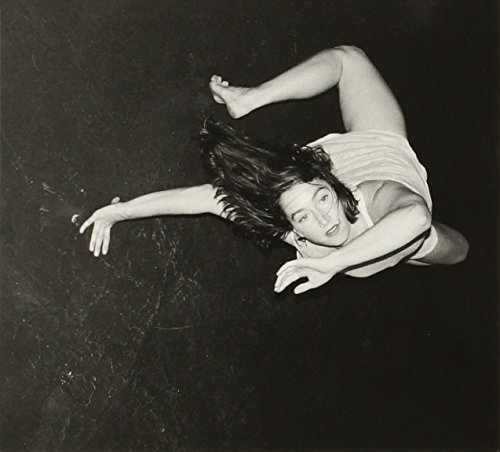
Raime
Quarter Turns Over a Living Line
Release Date: Dec 4, 2012
Genre(s): Electronic
Record label: Blackest Ever Black
Music Critic Score
How the Music Critic Score works
Album Review: Quarter Turns Over a Living Line by Raime
Exceptionally Good, Based on 7 Critics
Based on rating 5/5
“Holloway even succeeds in scratching, stabbing and ultimately kicking a hole in the wall, only to discover another windowless room with a doorway leading to another hallway spawning yet another endless series of empty rooms and passageways, all with walls potentially hiding and thus hinting at a possible exterior though inevitably winding up as just another border to another interior. ”– Mark Z. Danielewski, House of Leaves The claustrophobic scenarios Danielewski evokes in his debut novel House of Leaves are primary, meddling components to the hijacked narrative that nonchalantly switches between a documented transcript of characters exploring the hermetical bowels of a dwelling, the rambling footnotes of a paranoid hoodlum, and scattered clippings of hyperglyphic, multidimensional text strewn across the book’s foreboding pages.
Based on rating 9/10
When British record label Blackest Ever Black started their journey in 2010, it began with a duo called Raime. Their eponymous 12" was BEB's first-ever release; the sounds of '70s industrial steel and pounding, somber breakbeats heard on Raime EP seemed to epitomize the label's aesthetic, and the record is probably the label's most enduring and enigmatic calling card. Their modern industrial sounds reference various periods of timeless underground British music, and from the bleak Sheffield mechanics of Cabaret Voltaire to the shadowy '90s drum'n'bass of Source Direct, there is a definite and distinct darkness about Raime.
Based on rating 82%%
RaimeQuarter Turns Over A Living Line[Blackest Ever Black; 2012]By Will Ryan; December 4, 2012Purchase at: Insound (Vinyl) | Amazon (MP3 & CD) | iTunes | MOGTweetRaime has been a constant point of contention since releasing their first material on Blackest Ever Black back in 2010. The duo is easier defined by their sense of atmosphere and tactility rather than an allegiance to techno or ambient music. Demdike Stare is an obvious reference point, but Raime has more in common with clanging golden age industrial music, serrated post-punk, and the impending march of funereal doom metal than their dub and mysticism-inclined countryman.
Based on rating 8/10
The debut album from UK-based duo Raime (aka Joe Andrews and Tom Halstead) has been eagerly awaited ever since their eponymous EP back in 2010. On paper, Raime's latest album fits neatly into two of 2012's rising trends: the move to instrumentation away from pure sampling and the interest in John Carpenter's soundtrack work. In practice, however, the album stands alone from anything else released this year.
Based on rating 4.0/5
Raime and Blackest Ever Black: two names that have been inextricably linked since they made their debut together in 2010. Across the Raime EP and a further two for Kiran Sande's label, the duo of Joe Andrews and Tom Halstead have carved out a singular sound, drawing on the desiccated sonics of '70s and '80s goth and industrial, jungle's pulpy dystopianism, and claustrophobic bass weight tapped from either dubstep or doom metal—depending on who you ask. It's a finely poised hybrid that, in its apocalyptic sincerity, its brooding stylishness and effortless originality, seems the perfect articulation of the BEB ethos.
Based on rating 7.2/10
There isn't an easy entrance point into the music of Raime, the London-based duo signed to the appropriately named Blackest Ever Black label. At times it feels like Joe Andrews and Tom Halstead are purposefully erecting barriers around their work, desperate to keep listeners at a certain distance. This isn't an inclusive experience. It doesn't even tap into post-club comedown chills, although it comes close at times.
Opinion: Excellent
Around a decade ago - at jungle nights curated by the infamous Valve Soundsystem - lone sub tones would be played over the stack at immense volume once the lights had come up, just as spangled ravers were wending their way to the doors: a jarring aural send off that had a visibly disquieting effect on people, particularly those well 'refreshed'. To feel those bowel-rupturing frequencies - that had scant minutes before formed a warm cocoon – anew, only in stark white light, minus DJ, MC or any traditional rave signifiers other than raw, nerve-jangling paranoia, rendered the senses vulnerable. It felt like the ghost of jungle past, rushing for its night bus.

